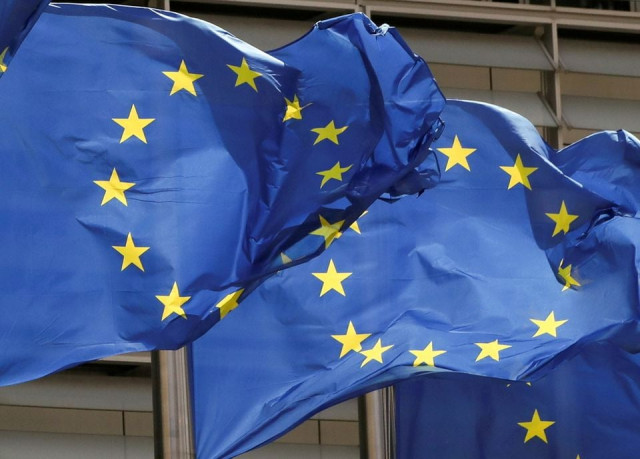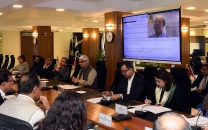EU eases financing curbs on Pakistan
Exit from 'list of High-Risk Third Countries’ reduces trade obstacles for Pakistani exporters

The European Union (EU) has removed Pakistan from its list of 'High-Risk Third Countries' for anti-money laundering and terrorist financing purposes, according to the Ministry of Commerce, the commerce ministry announced on Wednesday.
“In line with the last year’s FATF decision, the EU has decided to remove Pakistan from its list of countries with high risk regarding money laundering and financing of terrorism,” the bloc said on Twitter.
An important positive step for 🇵🇰!👏
— EUPakistan (@EUPakistan) March 29, 2023
In line with last year's FATF decision,the 🇪🇺 EU has decided to remove 🇵🇰 from its list of countries with high risk regarding money laundering & financing of terrorism.@RKionka @HinaRKhar @BBhuttoZardari https://t.co/RIXpTtRfam
The EU High Risk Third Countries list is a list of countries that the union considers to have strategic deficiencies in their anti-money laundering and counter-terrorism financing frameworks.
In a statement, the Ministry of Commerce stated that Pakistan was added to the EU’s list in October 2018, which imposed undue regulatory burdens on “Obligated Entities” within the Union and created obstacles in legal and financial transactions with individuals and entities based in Pakistan.
Read Pakistani professionals struggle with higher costs as economy teeters
It added that EU member states’ “Obligated Entities” will no longer be required to apply “Enhanced Customer Due Diligence” while conducting transactions with individuals and legal entities established in Pakistan.
The entities include credit institutions, financial institutions, auditors, external accountants, tax advisors, notaries, independent legal professionals (acting on behalf of and for their client in any financial or real estate transaction), estate agents and individuals trading in goods.
De-listing of Pakistan from EU's updated list of high-risk third-countries is a major development which will facilitate our businesses, individuals & entities. It is a reflection of our unwavering resolve to further strengthen anti-money laundering & anti-terror financing regime.
— Shehbaz Sharif (@CMShehbaz) March 29, 2023
The EU Commission is mandated to identify high-risk third countries having strategic deficiencies in their regime on anti-money laundering and countering the financing of terrorism (AML/CFT).
Commerce Minister Syed Naveed Qamar in a statement said that EU authorities have removed Pakistan from the list.
Sir
— Syed Naveed Qamar (@naveedqamarmna) March 28, 2023
EU has removed Pakistan from the List of High Risk Third Countries. Pakistani businesses and individuals would no longer be subjected to ‘Enhanced Customer Due Diligence’ by European legal and economic operators.
"Pakistani businesses and individuals would no longer be subjected to ‘Enhanced Customer Due Diligence’ by European legal and economic operators," he added.
The news was also confirmed by Senator Sherry Rehman in a tweet who credited Foreign Minister Bilawal Bhutto with the achievement.
Good news: the EU has removed Pakistan from its list of high-risk countries. Trade will now face less obstacles for Pakistani exporters, thanks to the efforts of the Foreign Minister @BBhuttoZardari
— SenatorSherryRehman (@sherryrehman) March 29, 2023
"Trade will now face fewer obstacles for Pakistani exporters, thanks to the efforts of FM Bilawal," she said.
Last year in October Pakistan was taken off the Financial Action Task Force (FATF) global money laundering watchlist followed by the United Kingdom's decision to follow suit in November.
Read More ‘Pakistan can overcome economic crisis with Moscow’s help’
The developments come as a much-needed breather when Pakistan faces the worst economic crisis in decades.
Minister for Planning and Development Ahsan Iqbal had previously stressed that “Pakistan desperately needs to take measures to bring the country’s economy out of crisis through sustainable export-led economic growth”.
The economy continues to remain under pressure as still-incomplete talks for the ninth review between Pakistan and the International Monetary Fund (IMF) for the revival of the loan programme -- which began on January 31 and had to be finished on February 9 -- are yet to conclude.



















COMMENTS
Comments are moderated and generally will be posted if they are on-topic and not abusive.
For more information, please see our Comments FAQ